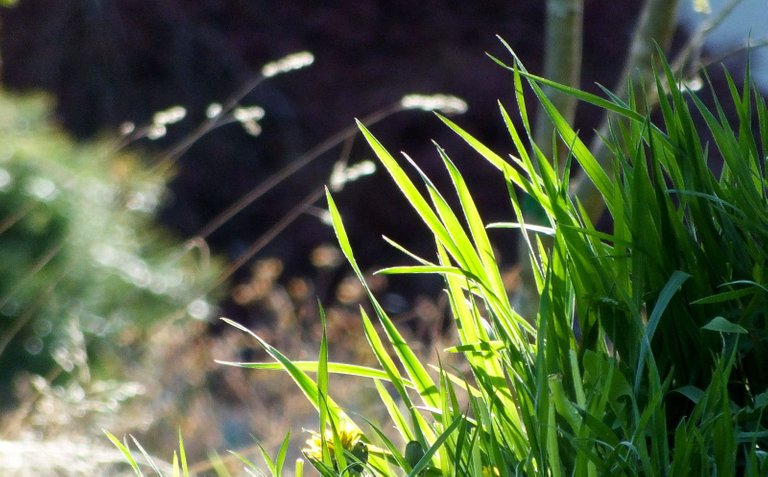I am what has generally come to be described as a “Highly Sensitive Person,” or HSP.
It's not something I typically volunteer or talk about, outside niche psychology circles.

Now, the word “sensitive” conjures to mind all sorts of things, usually dependent on your life experiences, upbringing and social values. In many cases — especially as it relates the to male gender — the word carries a lot of negative connotations… ranging from strict parents who told you that “boys don’t cry” to adult experiences of being thought “a bit light in the loafers” because you don’t follow a particular set of interests thought of as traditionally “male.”
In fact, I labored under the impression that something was psychologically and physiologically “wrong” with me until my mid 30’s because I felt WAY out of alignment with other men (and sometimes women) on account of this sensitivity I seemed to experience so often… I took a number of workshops and even sought psychotherapy in an attempt to “cure” this problem.
Because, surely, it was something that could be cured, right?
The underlying assumption — which was subsequently proven false — is that “being sensitive” is either a CHOICE, or it’s something that “happens to” you as a result of conditioning, or possibly trauma of some kind.
“You just need to grow a thicker skin!”
As it turns out, we may be able to learn to “fake it,” but being sensitive is typically an attribute that’s hardwired into our nervous system. We don’t get to CHOOSE it.
My perception of sensitivity — which in me manifested primarily as a severe aversion to bright light, loud noise, crowds, any kind of violence, anger and a number of other things — was radically changed in 1997 when I first came across Dr. Elaine Aron's book "The Highly Sensitive Person" which posited that some people's nervous systems are simply a little different... an attribute also observed in many animal populations.
Her work was originally thought of as "New Age Quackery" by many, but over the subsequent 25+ years the scientific and mental health industries came to realize that there was more to it... especially since the same attributes and behaviors can be found in over 100 species of mammals.
Anyway...
The reason I am bringing this up is that "Sensory Processing Sensitivity," as it is now called, was one of my niche study and writing topics for many years, and I have actually been the keeper of one of the web's oldest specialized blogs on this topic since 2002.
In the interest of publishing some content for consumption OUTSIDE Hive's borders, this is a topic I will be experimenting more with in the months ahead, because I am still somewhat connected to various psychology and mental health communities around the world... which should make it at least possible to drive some external traffic to Hive.
What Will it Accomplish?
To be honest, I don't know. But unless I give it a try, I will never know, right?
These days, a lot of people are talking about different ways to publicize Hive, and if there's ONE thing that holds true, it is that doing nothing isn't going to change things for the better.
The only metrics I really have available to me will be tracking page views through PeakD's "stats" feature, and keeping an eye on possible referrals, as I plan to only use referral links, and will add a modest boilerplate paragraph about Hive to each article.
Many people in the audience I will be reaching out to are writers in the fields of psychology and wellness... not your typical Hive user.
As a starting point, I plan to create five articles, spaced maybe a week apart, mixed in with my normal content. Each article will be publicized exactly as I publicized my external blog posts:
That will include — but not necessarily be limited to:
- A Facebook "support" page with +/- 19,000 Followers
- Three different Facebook "groups" with +/- 23,000 members, between them.
- Two twitter/X accounts with about 9,000 followers
- Writeup (as "new articles") on an external blog with about 5,000 unique visitors/month.
As I tend to promote things very sparingly, this is an audience that is not jaded from being bombarded with ads.
The challenge here, of course, is that Hive is way outside these people's typical wheelhouse.
I'm gonna give it a try... we'll see what happens.
And that's it, for today! As always, thanks for stopping by... and have a great weekend!
Comments, feedback and other interaction is invited and welcomed! Because — after all — SOCIAL content is about interacting, right? Leave a comment — share your experiences — be part of the conversation! I do my best to answer comments, even if it sometimes takes a few days!

Greetings bloggers and social content creators! This article was created via PeakD, a blogging application that's part of the Hive Social Content Experience. If you're a blogger, writer, poet, artist, vlogger, musician or other creative content wizard, come join us! Hive is a little "different" because it's not run by a "company;" it operates via the consensus of its users and your content can't be banned, censored, taken down or demonetized. And that COUNTS for something, in these uncertain times! So if you're ready for the next generation of social content where YOU retain ownership and control, come by and learn about Hive and make an account!


(As usual, all text and images by the author, unless otherwise credited. This is original content, created expressly and uniquely for this platform — NOT posted anywhere else!)
Created at 2024-09-07 00:51 PDT
1207/2464




Yeah, I would also say: ¡Let's see what happens!
In any case, here are some good soundtracks for HSP people that hopefully can help to spread and sink your message better on those brains who can stumble upon your posts outside Hive. :)